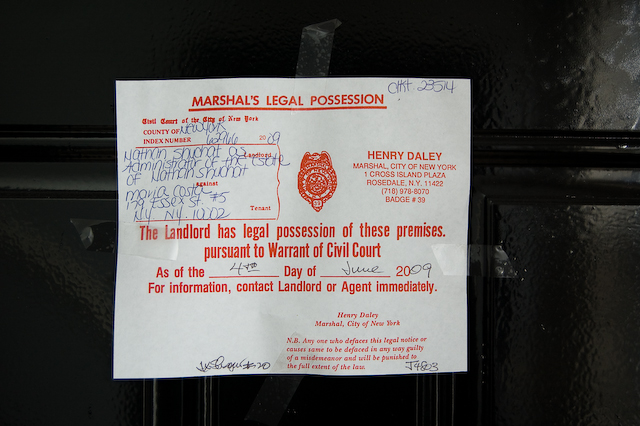 Some of our clients have a reason why they will not live in their house in New York for a particular period of time. Perhaps an employment assignment in another location has caused the homeowner to leave the area for a set period of time and the homeowner intends to return to the house. Maybe the homeowner is downsizing, but the sale market is not strong enough to command the price sought by the homeowner. For those intending to rent their home, we wish to convey the following advice.
Some of our clients have a reason why they will not live in their house in New York for a particular period of time. Perhaps an employment assignment in another location has caused the homeowner to leave the area for a set period of time and the homeowner intends to return to the house. Maybe the homeowner is downsizing, but the sale market is not strong enough to command the price sought by the homeowner. For those intending to rent their home, we wish to convey the following advice.
We suggest that you have professionals involved. Engage the service of a licensed real estate broker. The fee, usually one to two months’ rent, is a relatively modest amount to pay to insure that a professional locates a reliable tenant. If you decide to forego the services of a real estate agent , make sure that you carefully evaluate the proposed tenant by obtaining references from prior landlords and perform a credit check. Whether the tenant is located by a real estate broker or by your own efforts, trust your instinct if the tenant raises any concerns whatsoever and do not rent the house to such a person. Prior to the delivery of possession, walk through the house with the tenant, in order to show how appliances work and to document conditions together.
We also recommend that you engage the services of an attorney to have a lease drafted by a professional. A professionally drafted lease is important to have for several reasons. It will clearly identify the appropriate provisions, even if the relationship with the tenant ends up going smoothly. Your attorney will be prepared to cover changes in the law that the landlord may not be familiar with, such as the requirement to advise the tenant whether an automatic sprinkler system is present at the premises. In the event that a legal proceeding is required against the tenant for non-payment and other matters, having a professionally prepared lease will most likely cover items that protect the landlord in such a proceeding. If you intend to rent the house repeatedly, you may want to ask your attorney to also provide a form that can be used by you in the future as your needs warrant.
 New York Real Estate Lawyers Blog
New York Real Estate Lawyers Blog







 A recent series of
A recent series of 

 Many of our clients are landlords who own only one property, such as a single or multi-family house or an apartment. Although they may be renting to a tenant, it is not their primary business or livelihood. As such,
Many of our clients are landlords who own only one property, such as a single or multi-family house or an apartment. Although they may be renting to a tenant, it is not their primary business or livelihood. As such,